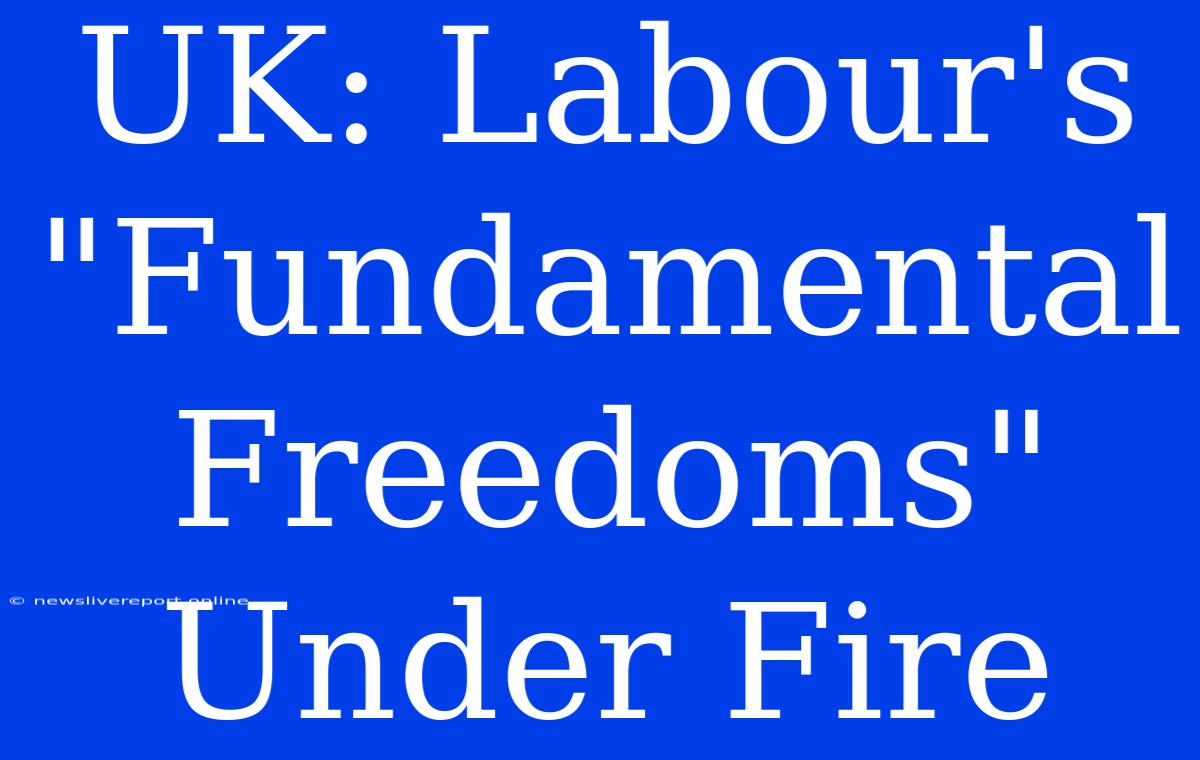UK: Labour's "Fundamental Freedoms" Proposal Under Fire
The Labour Party's proposed "Fundamental Freedoms" bill has sparked controversy, with critics raising concerns over its potential impact on freedom of speech and the rule of law.
What is the "Fundamental Freedoms" bill?
The bill, unveiled by Labour leader Keir Starmer, aims to codify and strengthen a range of fundamental rights, including the right to freedom of speech, freedom of assembly, and the right to a fair trial. It also proposes establishing a new "Freedoms Commission" to scrutinize government action and ensure compliance with these rights.
The Controversy
While many welcome the bill's intent to protect fundamental freedoms, critics argue that it risks curtailing free speech and could lead to an erosion of the rule of law. Key concerns include:
- Vagueness of Definitions: The bill's language regarding free speech is seen as ambiguous, potentially leading to arbitrary restrictions on expression.
- Overreach of the Freedoms Commission: Critics worry that the proposed commission's power to review government actions could be used to stifle dissent and undermine democratic processes.
- Potential for Judicial Activism: The bill's emphasis on judicial enforcement of rights raises concerns about judges acting beyond their purview and potentially overturning democratically elected decisions.
Proponents' Arguments
Labour supporters argue that the bill is necessary to safeguard fundamental rights in the face of growing threats to democracy and individual liberties. They highlight the importance of codifying these rights, emphasizing that they should not be taken for granted. Proponents also believe the Freedoms Commission is vital for ensuring that government action remains within the bounds of the law.
Key Points to Consider
- Balancing Freedoms: The debate raises crucial questions about the delicate balance between individual rights and the need to maintain order and protect public safety.
- The Role of the Courts: The bill's potential for judicial activism underscores the need for careful consideration of the relationship between the courts and the legislative branch.
- Evolving Definitions: The meaning of "fundamental freedoms" is subject to ongoing interpretation and may need to evolve in response to changing societal circumstances.
Conclusion
The Labour Party's "Fundamental Freedoms" bill has sparked a complex and important debate. As the bill progresses through the legislative process, it is vital that its potential implications for freedom of speech, the rule of law, and democratic principles are carefully scrutinized. Ultimately, any measures aimed at protecting fundamental freedoms should be balanced, well-defined, and consistent with the principles of a free and democratic society.

